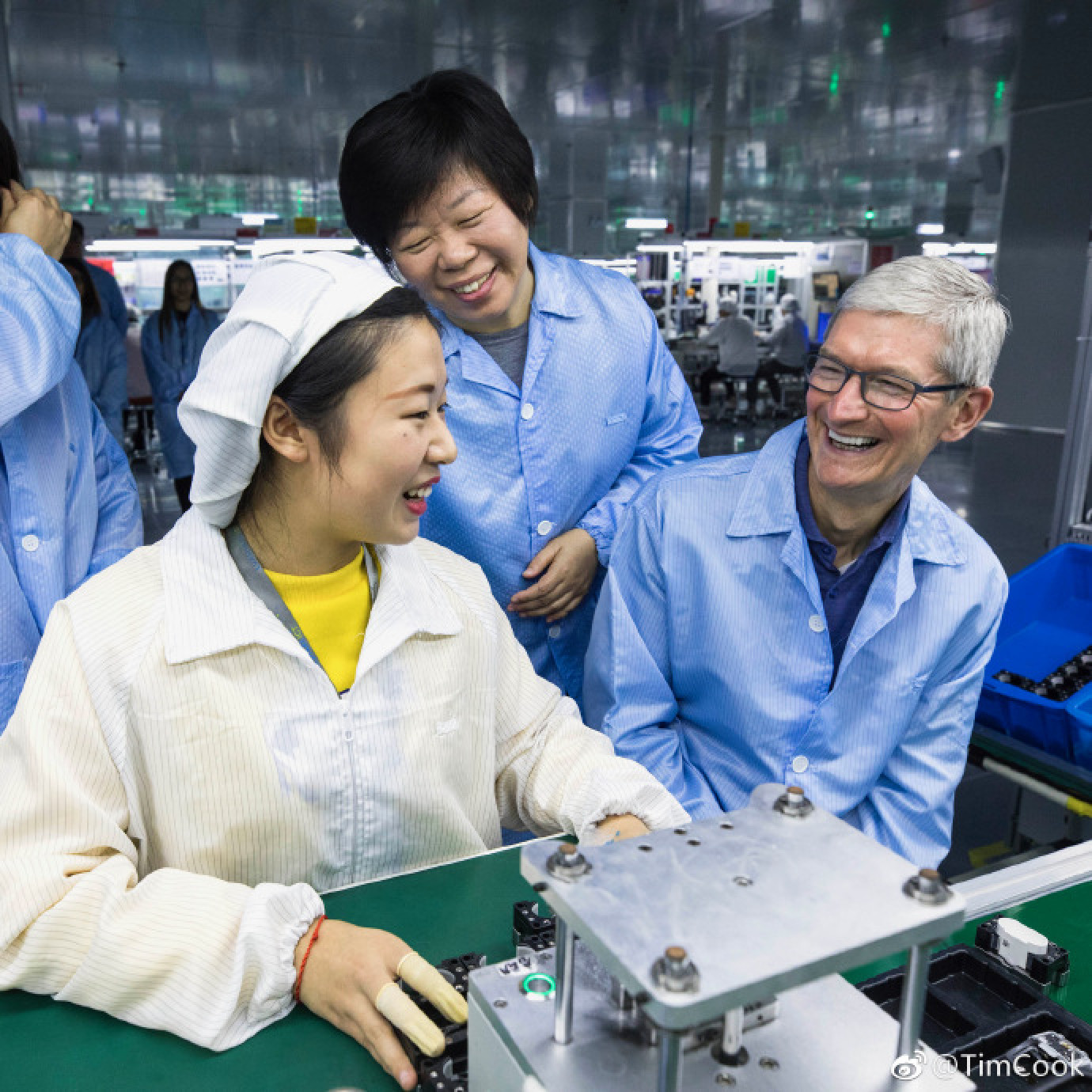
How China’s Luxshare, founded by a Foxconn factory worker, rose to become Apple’s iPhone Pro assembler
- Shenzhen-based Luxshare Precision is reportedly about to clinch a large premium iPhone order from Apple, breaking Foxconn’s dominance in the industry
- Founded in 2004 by former Foxconn factory worker Wang Laichun and her brother, Luxshare has risen to become one of Apple’s most important Chinese suppliers
Luxshare Precision Industry Co, a mainland Chinese electronics manufacturer, is reportedly set to sign its largest premium smartphone contract ever with Apple, a surprise gain against bigger Taiwanese rival Foxconn Technology Group, showing the Shenzhen-based company’s growing prowess since its founding nearly two decades ago.
Apple will be entrusting Luxshare with the assembly of more premium iPhones after it tapped the Chinese firm late last year to produce a small number of iPhone 14 Pro Max in Kunshan, a city near Shanghai, as Foxconn’s factory in the central Chinese city of Zhengzhou stumbled under a Covid-19 outbreak and staff exodus, the Financial Times reported on Thursday, citing people familiar with the situation.
Until a recent series of mishaps at Zhengzhou, Taipei-based Foxconn – formally known as Hon Hai Technology Group – had been tasked with assembling all of Apple’s latest iPhone Pro models.
Luxshare, also a main supplier of Apple’s AirPods wireless earbuds, was co-founded by Wang Laichun, 55, who hails from Shantou city in southern Guangdong province.
After graduating from junior high school in 1988, she joined a small factory established by Foxconn in nearby Shenzhen, becoming one of the first one hundred workers that the Taiwanese company hired on the mainland.
After 10 years assembling cable connectors at Foxconn, Wang left and established an electronics company with her brother in 2004 that would later become one of the most formidable business competitors to her former employer.
The company initially supplied cord connectors and other components to Foxconn. It went on to expand its business empire through a series of acquisitions, including the purchase of Kunshan United Tao Electronics Co in 2011, which marked its first entry into the prized Apple value chain, building cable connectors for MacBooks and iPads.
In 2017 and 2020, through the acquisitions of Meite Technology (Suzhou) and two factories from Wistron – both Taiwanese companies – Luxshare carved out an even larger share for itself in Apple’s supply chain by producing AirPods and entry-level iPhones.
By 2021, Wang was the second-richest woman in China, according to a list compiled by local financial information platform New Fortune.
Luxshare is the epitome of the growing technological advancement of mainland firms, which have ascended Apple’s supply chain despite global competition and geopolitical pressure.
While Taiwanese players such as Quanta Computer, Pegatron, Compal Electronics and Wistron have gradually moved away from manufacturing on the mainland, their Chinese counterparts have taken over.
In 2014, just 14 of 198 companies in Apple’s supply chain were based on the mainland, according to research by the Tokyo-based National Graduate Institute for Policy Studies.

Today, the country accounts for 91 of Apple’s 190 disclosed suppliers, according to the Californian giant’s list for the financial year ended September 25, 2021.
But as Apple comes under increasing scrutiny at home over its reliance on China as a manufacturing base, as well as production disruptions caused by Beijing’s shifting pandemic policies, the company has been accelerating plans to diversify its supply chain.
While the Indian government has been doling out incentives to attract more Apple suppliers, more still needs to be done for the country to become a primary base for iPhone production in the next few years, according to Navkendar Singh, associate vice-president of device research at IDC India.
“Factors will be the ability of the ecosystem to produce at scale, skill level, [and] infrastructure support like water, electricity, etc,” Singh said.
Mainland companies such as Luxshare, which depend on Apple as one of their most important clients for revenues, are also contending with slowing smartphone sales worldwide.
In a stock exchange filing on Thursday, Shenzhen-listed Luxshare sought to dispel rumours that the company is taking a big hit from reduced orders by Apple.


